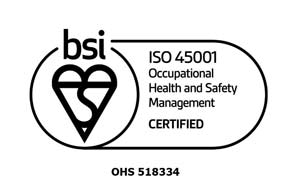Depression
Depression can affect anyone at any stage in life, even in childhood. It seems to affect women more frequently than men although this may indicate that men are less likely to seek help than women.
There are several different types of depression including manic depression or bipolar disorder, SAD and PND.
The most common form of depression however is experienced as a reaction to stressful life events usually involving loss, trauma, major work or personal difficulties or a combination of several problems.
There are many reasons why people become depressed and the condition affects people in different ways. There are however a number of symptoms that are commonly experienced. People can experience a few symptoms or several and they can vary in severity from person to person.
Symptoms of depression
If you have been suffering from five or more of the following symptoms during the same two week period you may wish to consult a GP or a counselling service.
- Feeling depressed most of the day nearly every day
- Not able to enjoy the things you generally used to enjoy
- Significant weight loss or gain
- Not being able to sleep or wanting to sleep more than normal
- Feelings of restlessness or fatigue
- Low energy or tiredness nearly every day
- Feeling worthless or guilty nearly every day
- Poor concentration or difficulty making decisions
- Thinking of death or suicide with or without a plan
What are the most common causes of depression?
- Relationship difficulties or a break-up
- Bereavement
- SAD - Seasonal Affective Disorder
- Loss of job
- Debt problems
- Difficulties at work
- Alcohol or drug issues
- A combination of stressful events
- A reaction to an accident or assault
- Following a virus
- Following childbirth
- Difficult social, economic or environmental circumstances
- A difficult childhood or background resulting in a vulnerability in adulthood
- Chronic pain
- Ageing
Sometimes there may not be an apparent reason for your depression, but it is important to try to identify any likely triggers.
Self assessment test - Are you depressed?
The following self assessment test will provide you with a general indication of depression. It is not meant as a substitute for a mental health assessment and is not in any way a diagnosis.
Managing your mood
- Break down tasks. Setting yourself achievable goals will give you a sense of satisfaction once completed.
- Identify your mood patterns. Try to plan your day according to your mood patterns, so that the most difficult part of your day is the least demanding.
- Keep active. Try going to the cinema, learning a new skill or join a social circle such as a book club. Being fully occupied has a positive effect on self esteem.
- If possible, delay making major life decisions. Speak to others who know you well and who have a more independent view of your situation.
- Eat a healthy diet. Eat plenty of fresh fruit and vegetables and try to include oily fish as this has been proven to help combat depressive symptoms.
- Exercise. Just 30 minutes 3 times a week has been proven to lift mood.
- Relax. Any form of healthy relaxation can clear and calm the mind. Consider trying Yoga or Tai Chi.
- Try to avoid caffeine, alcohol and nicotine. Alcohol in particular should be used with caution - it is a depressant which can worsen symptoms of depression.
- Be willing to change. Sometimes the way we think and live our lives is not always helpful or healthy. Think about what you could change to feel better about yourself.
- Tackle your fears and anxieties one at a time. As you take charge of your fears you will feel more able to cope.
- Feeling better takes time. At times, the road to recovery can feel like a roller coaster ride - two steps forward and two steps back. Being tough on yourself at this time can work against you.
- Put your problems into perspective. If possible help someone else. This alone can boost our feel good factor.
- Herbal remedies or anti depressant medication. These can assist recovery but do seek out medical advice before embarking upon any course of medication.
- Seek support.
By its very nature depression can prevent us from seeking help. We may feel a failure or ashamed that we cannot simply pull ourselves together. However, remember that depression can be treated and help is available.
Helping other people
If you know someone who is displaying signs of depression the best way to help them is to offer support and encourage them to seek proper treatment via their doctor or local mental health team.
Depressed people find it very difficult to see any hope of recovery and will often experience a lack of motivation to help themselves.
Continuing to support and encourage them to take small steps to get better without judgement or becoming impatient will make a big difference to their recovery.
Most people do recover in time and with the right treatment. However, if you feel that the depression is getting worse or the person is expressing suicidal thoughts you may wish to speak with a doctor yourself.
Post Natal Depression (PND)
It is believed that one in ten women can experience Post Natal Depression (PND) which can last for up two years. As many as 80% of women within the first two weeks postpartum report feeling low in mood and sometimes they can develop further symptoms of depression as described in the above section.
PND can have a major effect on a woman's self image and how she sees herself as a wife and mother. PND can have significant effects on the family as a whole and upon the relationship with the partner. Most of all it can have significant problems for the mother.
Often PND will go undiagnosed. This can be because the mother is afraid to seek help. She desperately does not want to be seen as a 'failure'. At times like this women do need support and it does not mean that they are bad parents.
Women who experience PND often feel that their relationship with their partner is poor- this also makes it difficult for the partner to support her.
If you are struggling with the birth of a new baby talk to a professional such as the midwife, health visitor or the doctor.
If you are a husband and father and believe that your partner is feeling a prolonged sadness or may be experiencing some depressive symptoms make every effort to talk things through or consult your doctor.
Remember that men can experience depressive symptoms too at this time and this can have a major impact upon other children in the family.
Depression in older people
Whilst it is true that many older people experience depression it is not true that becoming older means you will necessarily become depressed.
You may be the carer of an older person with depression or you may be in the older-age group yourself. Older people are generally considered to be people over the age of statutory retirement.
Suicide
To consider suicide as an option is clearly the most serious and final step anyone can take. There are factors that can increase the risk of suicidal thoughts or a suicide attempt.
- A previous suicide attempt
- A family history of suicide
- A recent suicide of a friend or colleague
- Expressions of intense guilt or hopelessness
- Threatening, talking or joking about suicide
- Tidying up affairs - for example, giving away favourite possessions or collections.
- Having the means to commit suicide - for example, stock piling tablets or alcohol.
- Alcohol or drug abuse - A mild depression can suddenly plummet to suicidal intensity with the help of drugs or alcohol.
- A sudden, major loss or humiliation - for example any significant stressful life event can provoke a depressive episode but can also precipitate an unexpected suicide attempt.
Are you or someone you know at risk?
If you are feeling suicidal or know someone who is please read the following information.
If you have suicidal thoughts:
- Consider speaking to someone who may be able to help you and delay your decision.
- Speaking to a friend, partner, family member or colleague can help - but be cautious - strong feelings can alert high anxiety in some people.
- Speaking with a trained counsellor can often relieve the pain and pressure you are feeling.
- Another option is to speak to your doctor.
- Do not suffer alone - we all need help and support at some times in our lives - there are people who can help and advise you while you are feeling so low.
If someone you know is at risk of if someone discloses any suicidal feelings to you:
- Keep calm - listen and be yourself.
- Don't give answers or ask difficult questions.
- Do try to empathise and show you care.
- If the person has a clear plan, has means and a date in mind - advise them to get some professional help and offer your support to help them do so.
- Do ensure the person knows you will continue to help them.
Useful links and numbers
Samaritans.org contact number 116 123
Hopeline.co.uk contact number 0800414141
































